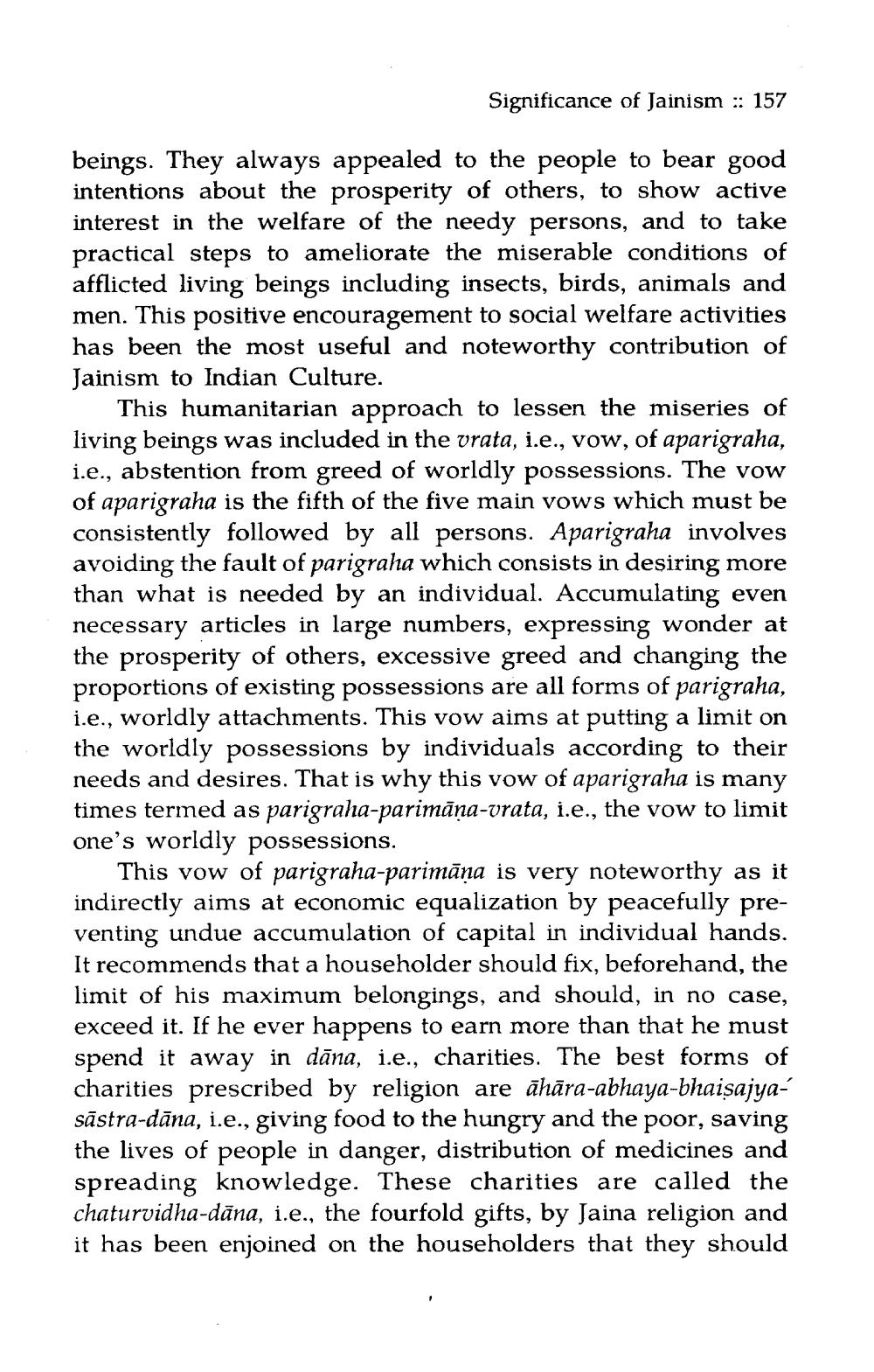________________
Significance of Jainism :: 157
beings. They always appealed to the people to bear good intentions about the prosperity of others, to show active interest in the welfare of the needy persons, and to take practical steps to ameliorate the miserable conditions of afflicted living beings including insects, birds, animals and men. This positive encouragement to social welfare activities has been the most useful and noteworthy contribution of Jainism to Indian Culture.
This humanitarian approach to lessen the miseries of living beings was included in the vrata, i.e., vow, of aparigraha, i.e., abstention from greed of worldly possessions. The vow of aparigraha is the fifth of the five main vows which must be consistently followed by all persons. Aparigraha involves avoiding the fault of parigraha which consists in desiring more than what is needed by an individual. Accumulating even necessary articles in large numbers, expressing wonder at the prosperity of others, excessive greed and changing the proportions of existing possessions are all forms of parigraha, i.e., worldly attachments. This vow aims at putting a limit on the worldly possessions by individuals according to their needs and desires. That is why this vow of aparigraha is many times termed as parigraha-parimāņa-vrata, i.e., the vow to limit one's worldly possessions.
This vow of parigraha-parimāna is very noteworthy as it indirectly aims at economic equalization by peacefully preventing undue accumulation of capital in individual hands. It recommends that a householder should fix, beforehand, the limit of his maximum belongings, and should, in no case, exceed it. If he ever happens to earn more than that he must spend it away in dāna, i.e., charities. The best forms of charities prescribed by religion are āhāra-abhaya-bhaisajyasāstra-dāna, i.e., giving food to the hungry and the poor, saving the lives of people in danger, distribution of medicines and spreading knowledge. These charities are called the chaturvidha-dāna, i.e., the fourfold gifts, by Jaina religion and it has been enjoined on the householders that they should




